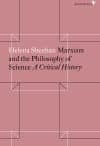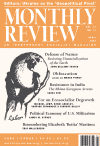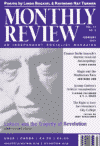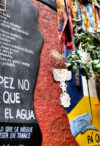History

In 1980, the great English historian and Marxist theorist E. P. Thompson wrote the pathbreaking essay “Notes on Exterminism, the Last Stage of Civilization.” Although the world has undergone a number of significant changes since, Thompson’s essay remains a useful starting point in approaching the central contradictions of our times, characterized by the planetary ecological crisis, COVID-19 pandemic, New Cold War, and current “empire of chaos”—all arising from features deeply embedded in the contemporary capitalist political economy. | more…

From Marx and Engels to COVID-19 and COP26
The history of Marxism in relation to science is extraordinarily dense and dramatic. Although it is a fascinating and important story, it is one increasingly forgotten. | more…

In 1975, Walter Rodney said, Africa is on the move. This line stays with me, digs deep into my sense of historical possibility. What did Rodney mean when he said that line? | more…

As we write these notes at the beginning of March 2022, the eight-year limited civil war in Ukraine has turned into a full-scale war. This represents a turning point in the New Cold War and a great human tragedy. By threatening global nuclear holocaust, these events are also now endangering the entire world. To understand the origins of the New Cold War and the onset of the current Russian entry into the Ukrainian civil war, it is necessary to go back to decisions associated with the creation of the New World Order made in Washington when the previous Cold War ended in 1991. | more…

The cold-blooded murders of activists by state forces in India represents a historical pattern of extrajudicial repression. | more…

Scott Borchert on the Federal Writers' Project
The Great Depression is almost one century old. Today in the United States we remember this international economic collapse, and the suffering it engendered, by reading novels and essays about it, watching plays, viewing paintings—often forgetting that the U.S. government of that time encouraged and financially supported much of this art. Not only art: the Depression was one of the few times that the federal government ever stepped in to help ordinary people get on their feet. | more…

The COVID-19 pandemic shows no signs of going away, with a new wave of SARS-CoV-2 now occurring in the form of the more readily transmittable Omicron variant. In these circumstances, the issue of vaccine imperialism, dividing the Global North and the Global South, has taken on new significance. | more…

This special issue of Monthly Review, The Cuban Revolution Today: Experiments in the Grip of Challenges, carries forward a tradition established six decades ago. The stance of the magazine reflects the view of C. Wright Mills. In his Listen, Yankee, Mills wrote that we don’t worry about the Cuban Revolution, we worry with it. This volume is put together in that spirit. | more…

The U.S. government is obsessed with Cuba. Cuba is a small island, ninety miles off the shore of Florida, that is home to eleven million people. Not a day has gone by that the United States has not tried to overturn the Cuban Revolution, through the assassination of its leaders, invasions by proxy forces, preventing it from normal commercial and diplomatic relations, and encouraging social distress in the island to become a counterrevolutionary force. That is the level of the obsession. | more…
The Cuban Revolution cannot disintegrate because it was never made of meringue. Not because it has not been sweet, but because the revolution has also tasted bitter fruits that, to date, we have known how to turn into strengths. | more…

Reflections on the Eighth Party Congress
The Eighth Congress of the Communist Party of Cuba—held from April 16 to 19, 2021—offers salient questions, issues, and other themes of the current reality of Cuba from the view of revolutionary militants. Let us take heed. | more…

Bhagat Singh is an iconic figure of the radical left tradition in India. If Singh, killed in the resistance to British colonialism, were to return from the dead, would he feel that the India of today, brought about by its ruling classes and their political representatives, was really worth his and his comrades’ martyrdom? | more…









